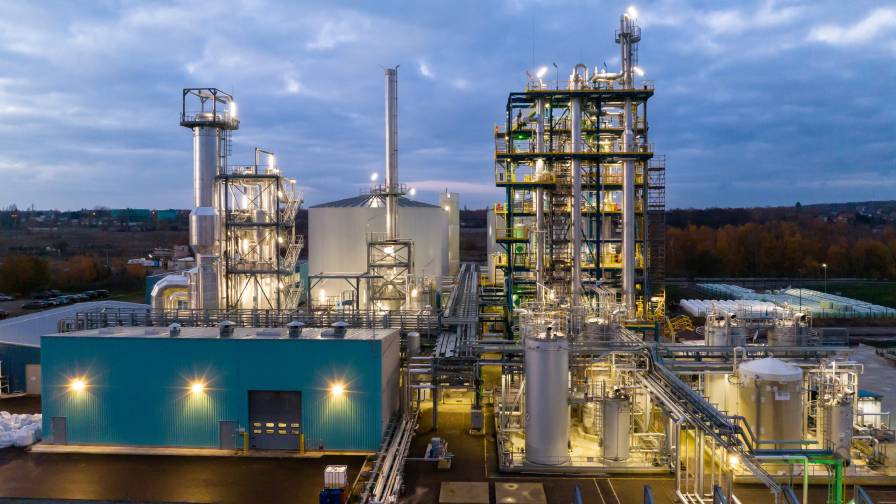Russian Agrochemicals Market to Show World’s Highest Growth Rates This Year
Russia’s crop protection sector could see one of the highest growth rates among global markets this year.
The ongoing boom in the country’s agricultural sector is being led by the growing use of agrochemicals by local farmers, according to recent statements made by representatives of some leading local producers and analysts in the field of agrochemicals.
Despite the COVID-19 pandemic, last year Russian crop protection market saw overall growth of 9% in value terms (15% in the case of pesticides) to almost $1.95 billion. That allowed Russia to overtake France and became the largest agrochemical market in Europe.
According to local analysts, the growth of the 2021 market could even outpace last year.
Mikhail Danilov, an official spokesman of Avgust, a leading domestic producer of agrochemicals in Russia, in an exclusive interview said despite such impressive growth observed in recent years, the market is still far from saturated, and the use of agrochemicals by local farmers continues its surge.
“Currently the growth of the Russian agricultural sector is ongoing, which is mainly due to its huge support, which is provided by the state and which is primarily in the form of low cost, subsidized loans,” Danilov says. “In the case of maintaining of such dynamics this year, the market will most likely show the highest growth rates among the Top 10 global agrochemical nations.”
The same position is shared by representatives of global agrochemicals producers, operating in the Russian market.
Ivan Konovets, vice president of marketing of Syngenta Russia, in an exclusive interview said the Russian market since the beginning of 2000s has demonstrated higher growth dynamics, compared with other large global markets. That could be explained by the structure of cultivated crops in Russia (as well as a shift to the production of more intensive crops), as well as intensification of production of such key crops as winter and spring wheat, corn, among others.
“There is no doubt that the market will continue to grow this year,” Konovets says. “A positive situation with prices in the global agricultural market, as well as Russia’s status as one of the world’s largest agricultural exporters are the key factors supporting this trend. In contrast to some previous years, the biggest growth this year is expected to be observed in the case of insecticides, which in recent years has become one of the most promising segments of the market. At the same time, much will depend on ruble exchange rate, since more than 80% in the cost of plant protection products depends on foreign currencies. The devaluation of the ruble, which is coupled with high prices for agricultural products will contribute to a further growth of prices and the growth of the market by 7% to 9% this year.”
Amid the ongoing growth of the market, many local producers and global manufacturers consider revising their strategies for further development in Russia. For some, that involves the establishment of their own production facilities within the territory of the country and the refuse from the contract manufacturing of their products at the capacities of local partners.
For example, such plans were confirmed by German Bayer AG. Maya Talashvili, an official spokeswoman of Bayer Russia, said the company plans to build its own plant, that will specialize on the production of crop protection products within the territory of the “Lipetsk” Special Economic Zone in the city of Lipetsk. The plant will mainly focus on the Russian market, while some products will be exported, including to the CIS countries.
According to Talashvili, Bayer focuses on the production of products for the protection of cereals, corn, and sugar beet.
Talashvili has also added the company has already working on localizing production of crop protection products in cooperation with a local partner Agrochemikat. The partnership currently produces 15 of products at its facility at present.
Bayer is not the only multinational looking to tap into the Russian market. Syngenta will launch its own large-scale production for the development of agrochemicals in Russia this year with the completion of a facility at the Yelets site of the same Lipetsk region.
As representatives of the Russian branch of the company expressed in an exclusive interview the Lipetsk enterprise worth 1.6 billion rubles ($30 million) will be engaged in the formulation of complex herbicides.
There is a possibility that German agrochemicals giant BASF will also enter the market, as the company also considers Russia one of the most promising for its development in years to come.
Stephanie Reiss, an official spokesman of BASF in an exclusive interview said the company plans to further grow in the crop protection market in Russia this year.
“We will continue to explore opportunities for further localization of our production in Russia,” Reiss says. “At the same time, we intend to optimize our commercial approach by adjusting our distribution, becoming even more transparent for our partners and even more attractive for farmers.”
According to Reiss, as well as producers and analysts there is a clear trend towards intensified agriculture, while Russian farmers think more and more about not only achieving higher yield, but also about its quality. These factors, coupled with the export potential in the wheat and oilseed segments, and growing demand on the global markets for high-quality agricultural production, will secure further growth of the crop protection market in Russia.






